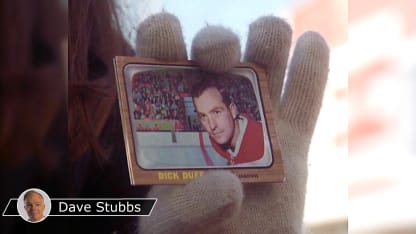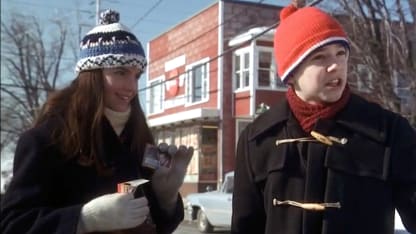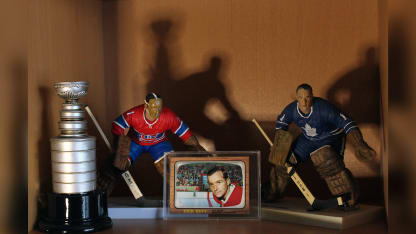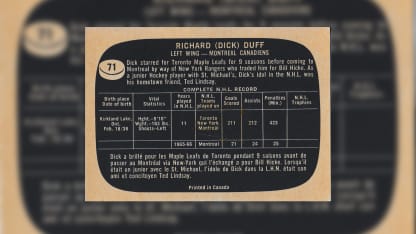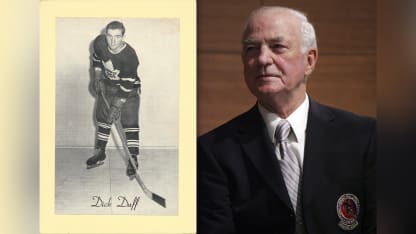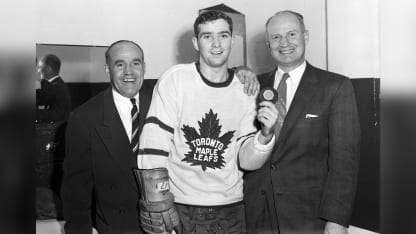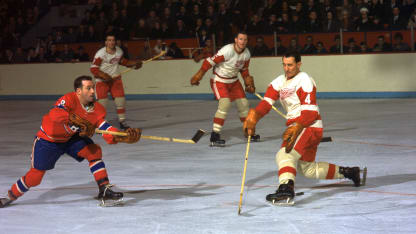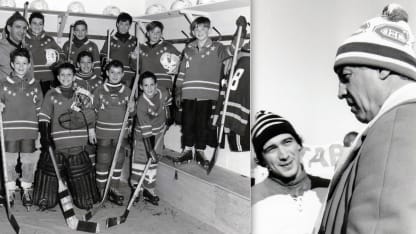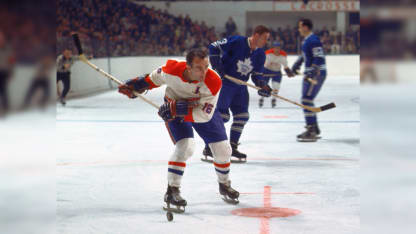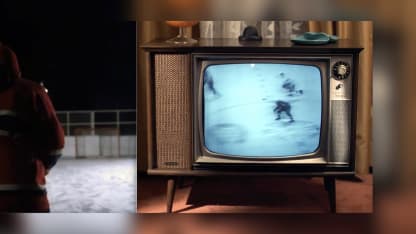The back of Dick Duff's 1966-67 hockey card, listing his 1965-66 statistics and that his idol was his hometown friend, Ted Lindsay. Topps Hockey
Playing left wing, Duff won the Stanley Cup with Toronto in 1962 and '63, then with the Canadiens in 1965, '66, '68 and '69. The native of Kirkland Lake, Ontario played 1,030 NHL games from 1955-71, scoring 572 points (283 goals, 289 assists) for the Maple Leafs, New York Rangers, Canadiens, Los Angeles Kings and finally the Buffalo Sabres on his way to his Hockey Hall of Fame induction in 2006.
Duff is one of five living members of the Maple Leafs' 1962 Stanley Cup champion, the oldest of the group; he is six weeks older than Bob Pulford, seven months older than Bobby Baun, and the senior of Frank Mahovlich, 85, and Dave Keon, 82.
He can't quite believe that an internet database catalogs 210 Duff cards and premiums, from his 1955 Bee Hive Golden Corn Syrup promotional photo and Parkhurst rookie card through his 2021-22 Upper Deck Honoured Members of the Hall of Fame card.
It is a delightful coincidence that Duff today lives just down the street from where the St. Lawrence Starch Company plant operated for decades, 15 miles southwest of old Maple Leaf Gardens. From 1934-68, the company produced Bee Hive hockey photos, to this day highly coveted collectibles that became Canada's most successful consumer promotion ever. Duff appeared in two Bee Hives, in the 1955-56 and 1964-65 series.
